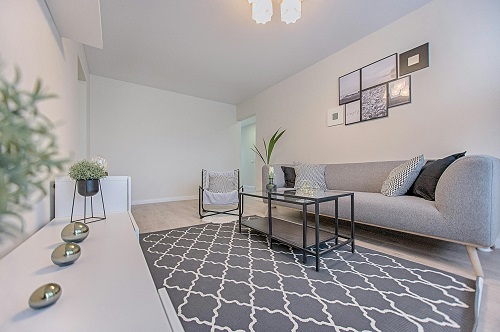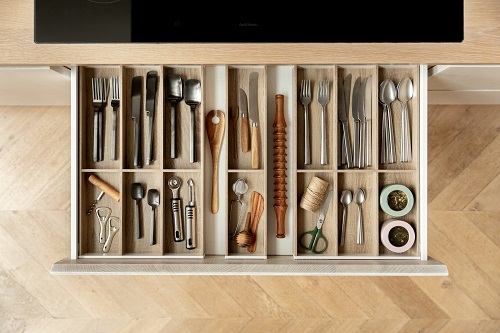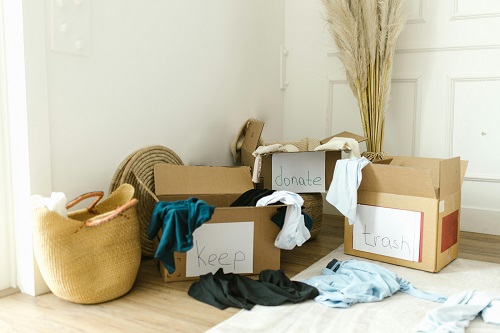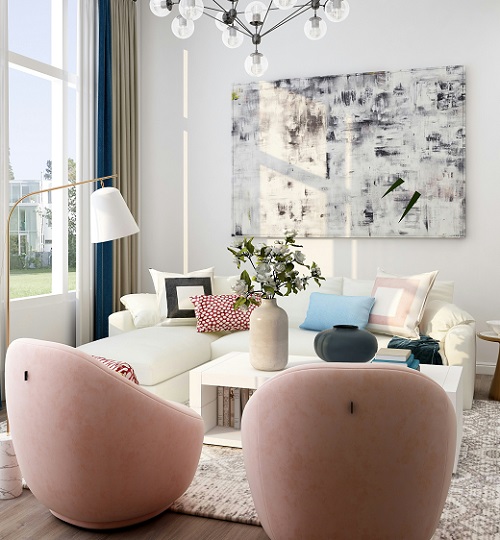Breaking Free from the Chaos
By Pamela Wong
Pamela is a Trained Professional Organizer based in Oakville, Ontario and is the owner of Zen N Organized. She helps homeowners and small business owners transform their homes and home offices into organized spaces. She has a practical, non-judgemental approach to organizing. Her objective is to create functional and harmonious spaces for her clients.

Understanding the Link Between Clutter and Stress
For many professional parents, life is a juggling act between career and family responsibilities. With so much on their plates, it’s easy for clutter to build up—both physically and mentally. What many don’t realize is how this clutter can significantly contribute to stress. Whether it’s a messy kitchen counter or an overwhelming to-do list, clutter can impact emotional, physical, physiological, and environmental well-being. Fortunately, by addressing clutter step-by-step, it is possible to regain some sense of calm and control.
The Types of Stress Caused by Clutter
Clutter manifests as more than just piles of laundry or scattered paperwork. It also creeps into the mind, leaving women feeling disorganized and overwhelmed. Some of the primary forms of stress cause by clutter are
- Emotional Stress – Feelings of guilt, shame, or frustration due to disorganization.
- Physical Stress – Fatigue or exhaustion from constantly moving things around or not finding items when we need them..
- Physiological Stress – Increased heart rate, headaches, and muscle tension caused by sensory overload.
- Environmental Stress – Chaos in living and working spaces that makes it difficult to relax or focus.
Solutions for Managing Clutter-Induced Stress
Now that we’ve identified the types of stress, we can look at practical solutions to tackle each one effectively.
1. Emotional Stress
Problem: Emotional stress often stems from feelings of inadequacy, guilt, or frustration when the home or workspace is cluttered. Many moms feel judged by others or themselves, leading to internal pressure.
Solution:
- Start Small: Focus on one area at a time, such as clearing a countertop or organizing a drawer. Celebrate small wins to build confidence.
- Delegate Tasks: Involve family members by assigning age-appropriate tasks to children and asking spouses for support.
- Shift Your Mindset: Remind yourself that perfection isn’t necessary. Aim for functional and manageable spaces instead.
- Set Boundaries: Learn to say no to unnecessary commitments or new items that add to the clutter.
2. Physical Stress
Problem: Constantly searching for items, stepping over toys, or dealing with overflowing closets can drain physical energy and lead to exhaustion.
Solution:
- Declutter Regularly: Establish a weekly decluttering routine to prevent build-up. Use timers to stay focused for short bursts (e.g., 15-20 minutes).
- Use Organizers: Invest in baskets, bins, and shelves to keep items easily accessible.
- Create Systems: Designate spaces for specific items (keys, mail, bags) to save time and reduce stress.
- Purge Unnecessary Items: Donate or discard things that no longer serve a purpose to make room for what matters.
3. Physiological Stress
Problem: Overstimulation from cluttered spaces can lead to elevated cortisol levels, headaches, and difficulty sleeping.
Solution:
- Simplify Decor: Opt for a minimalist style with calming colors and fewer decorative items.
- Incorporate Relaxation Zones: Dedicate a small area in the home for meditation, reading, or quiet reflection.
- Add Greenery: Houseplants can improve air quality and create a soothing atmosphere.
4. Environmental Stress
Problem: Disorganized spaces make it difficult to focus and work or enjoy downtime, contributing to an ongoing sense of chaos.
Solution:
- Design Functional Layouts: Rearrange your furniture to create a flow and functionality in high-use areas like the kitchen or home office.
- Streamline Workspaces: Keep desks and countertops clear except for essentials to maintain productivity.
- Rotate Items: Store seasonal or rarely used items out of sight to free up space.
- Digital Decluttering: Clean up email inboxes, organize computer files, and unsubscribe from unnecessary newsletters to reduce digital noise.
Building Lasting Habits
While tackling clutter can feel daunting, creating sustainable habits helps maintain order and reduces future stress. Consider these strategies:
- Daily Resets: Spend 10 minutes at the end of each day tidying up.
- One-In, One-Out Rule: For every new item brought into the home, remove an old one.
- Schedule Maintenance: Set aside time each month for larger organizational projects.
- Prioritize Self-Care: Recognize that a clear mind and space start with self-care. Make time for hobbies, exercise, and relaxation.
The Bigger Picture: Reducing Clutter, Gaining Freedom
For busy professionals, tackling clutter isn’t just about creating a neat home; it’s about reclaiming time, energy, and peace of mind. By addressing physical and mental clutter, you can alleviate multiple forms of stress and create environments that support your well-being.
With practical steps and sustainable habits, it’s possible to turn chaos into calm— one organized space at a time. Start today and experience the freedom that comes with letting go of what no longer serves you.



